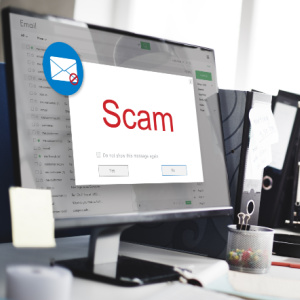Post Interview: Thank-You Email or Handwritten Thank-You Note?
Posted on January 28, 2020

We disagree.
Here’s why sending a post interview thank-you is always a good idea:
- It keeps you top of mind with your interviewer.
- It provides you with another opportunity to reiterate your interest in the position.
- It adds a personal touch and makes a good impression.
Sending a thank-you note should go without saying. The real question that most job seekers have is whether to send a handwritten note or an email.
There are benefits to each.
We’ll break down when each format makes the most sense, so you can decide what works best for you.
Send a thank-you email if:
-
The interview or industry is high-tech.
Handwritten thank-you notes are common after an in-person meeting. If yours was a phone or video interview, send a thank-you email. To be honest, it’s probably preferred. A handwritten note to a high-tech company may make you seem out-of-touch or not the right fit for the particular industry or company culture.
-
You know the hiring manager is making a decision fast.
Sometimes you just don’t have enough time to get a handwritten thank-you note in front of a hiring manager. Emails make time a non-issue because they are immediate. As soon as you click “send” on an email, it lands in the recipient’s inbox. And people check their emails frequently throughout the day. Sending a thank-you email guarantees that it will be seen right away.
-
The interviewer expressed that email was preferred.
It’s important to keep your audience in mind when deciding whether to send an email or handwritten note. While a handwritten note is nice, it might not be the right approach for every hiring manager. For example, if your interviewer mentioned that email was the best way to contact them, they may misinterpret you sending a card as a sign that you weren’t paying attention.
Send a handwritten thank-you note if:
-
You want to stand out from other applicants.
Today’s world is digital. Emails, while efficient, don’t particularly stand out. A nice letter, or thank-you card, is much more uncommon and often a pleasant surprise. Because it’s not as easy or as quick as an email, the hiring manager knows that you invested more time and effort into sending the message.
-
You know you have time.
The interviewer may have shared that they were planning to make a hiring decision by the end of the week, or later. If you know that you have a few days, a handwritten note is a great idea. Now, we are not suggesting that you wait to send a thank-you card. Compose and send the note as soon as possible. Ideally, your interviewer should receive the thank-you note a couple of days after the interview.
-
Your penmanship is neat and easy to read.
The whole purpose of sending a thank-you note is to make a positive impression, express your gratitude for the interviewer’s time, and hopefully stand out among other applicants. A handwritten note that no one can read, however, muddles your good intentions and may inadvertently leave a negative impression. If you know your handwriting is difficult to read, do yourself (and your hiring manager) a favor, and send an email instead.
Send both a thank-you email and a handwritten thank-you note if:
-
You want to stay top of mind longer.
Interviewers typically meet with multiple applicants over the course of several days, or weeks, depending on the position. Sending both an email and a handwritten note after your interview helps keep your name on their radar longer. An email is an easy way to demonstrate immediate interest and follow-through. A handwritten note is a nice, personal touch, but piggybacking it to an email has the added benefit of bringing your name back to the forefront a few days later.
Whatever thank-you format you decide upon, ensure that it is clear and well-crafted.
Thank-you note best practices:
- Proofread. Proofread. Proofread. Check the thank-you message for any misspellings or grammatical errors.
- Personalize your message. It’s easy to spot a generic message. Incorporate something specific from your interview: something your interviewer shared, an interesting takeaway, or a key topic that was discussed.
- Include as many names as possible. Try to acknowledge all the people you met/spoke with in your thank-you message. If you can remember the name of the receptionist, you’ll definitely earn some bonus points!
- Reiterate your interest in the job. While thanking the interviewer for their time is polite, remember that your goal is landing the job. Close your message by expressing your interest in the job once more.
Bonus tip:
- Avoid calling to say thanks. Employers are usually very busy. Demonstrate that you are considerate of their time.
So should you send an email or handwritten thank you note after an interview?
There are times when a thank-you email makes more sense than a handwritten thank-you and vice-versa. There may even be a time when sending both makes sense.At the end of the day, the format you choose is up to you. The main thing is that you follow-up with a thank-you note after an interview.
How TERRA Can Help
Interested in more interview tips? Visit our blog. We have several great articles designed specifically to help job seekers be successful pre and post interview.
And if you are interested in help with your job search, don’t forget that a staffing agency is a great resource. Recruiters want you to be successful and often provide additional support, including interview best practices such as whether to send an email or handwritten thank-you note.
Looking for work in the Seattle-Puget Sound, Portland-Metro, and Phoenix-Metro areas? Consider partnering with TERRA Staffing Group. We’d love to help you find the right fit.

Categories: Career Tips
Tags: email thank-you, handwritten thank-you, post-interview best practices, thank-you note




